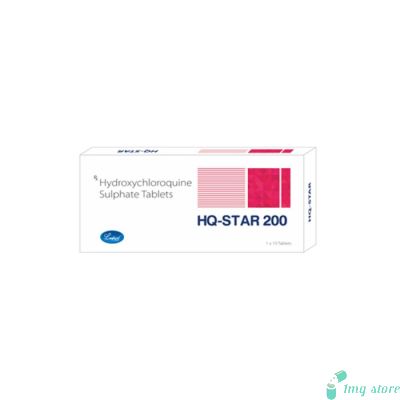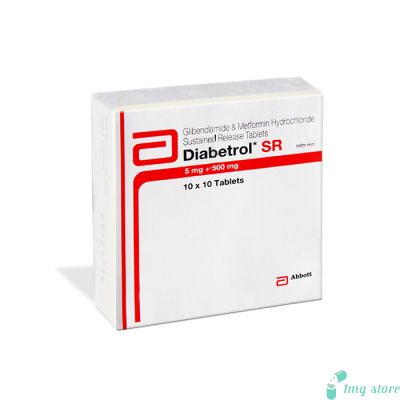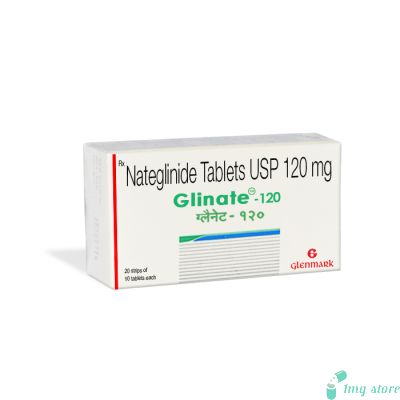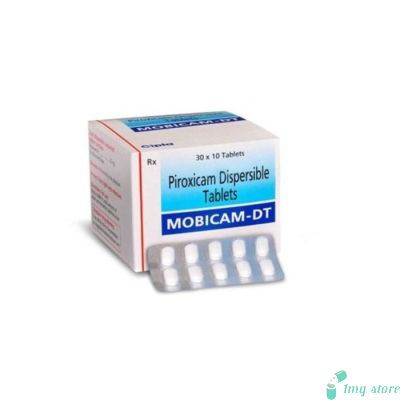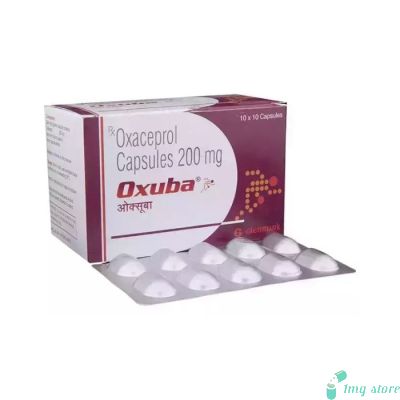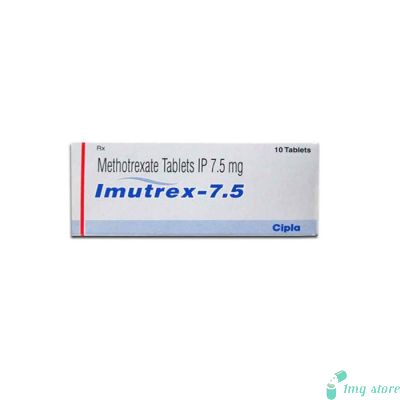Zy-Q Tablet (Hydroxychloroquine)
Buy Zy-Q Tablet (Hydroxychloroquine), Hydroxychloroquine is a medication that belongs to the class of drugs known as antimalarials. It is widely used in the treatment of various conditions, including malaria, autoimmune diseases like rheumatoid arthritis and lupus, and certain dermatological conditions. Plaquenil is another band name for Hydroxychloroquine.
Introduction of Zy-Q Tablet (Hydroxychloroquine)
Hydroxychloroquine is a medication that belongs to the class of drugs known as antimalarials. It is widely used in the treatment of various conditions, including Malaria, autoimmune diseases like Rheumatoid Arthritis and lupus, and certain dermatological conditions. Hydroxychloroquine tablets are available under different brand names, such as Zy-Q and Plaquenil. This comprehensive guide provides essential information about the dosage, uses, side effects, precautions, and potential drug interactions associated with Hydroxychloroquine tablets.
Hydroxychloroquine Dosage Information:
- The dosage of Hydroxychloroquine tablets can vary depending on the condition being treated. It's crucial to follow the prescribed dosage provided by your healthcare provider or as indicated on the medication label.
- For malaria prevention, a typical adult dosage might be around 400 mg once a week, starting one to two weeks before entering a malaria-prone area, and continuing throughout the stay.
- For the treatment of autoimmune diseases like Rheumatoid arthritis or lupus, the initial adult dosage is usually 400 to 600 mg per day, with the dose potentially being reduced to a maintenance dose of 200 to 400 mg per day over time.
- Pediatric dosages are usually based on the child's weight and are determined by a healthcare professional.
- Dosages may be adjusted based on the patient's response to the medication and any potential interactions with other drugs they might be taking.
Missed Dose and Overdose:
Missed Dose: If a dose of Hydroxychloroquine is missed, it's advised to take the missed dose as soon as remembered. However, if it's close to the time for the next scheduled dose, it's recommended to skip the missed dose and continue with the regular dosing schedule.
Overdose: In case of an overdose, individuals should seek immediate medical attention. Overdosing on Hydroxychloroquine can lead to serious symptoms such as severe headache, drowsiness, visual disturbances, cardiovascular complications, and even life-threatening arrhythmias.
Hydroxychloroquine Sulfate Tablet:
Hydroxychloroquine sulfate tablets are a pharmaceutical formulation of the medication used to treat various conditions like Malaria, autoimmune diseases, and certain Skin Disorders. These tablets contain hydroxychloroquine in the sulfate form, which is the active ingredient responsible for its therapeutic effects. Consult a healthcare professional for proper usage and dosage instructions.
Hydroxychloroquine with Prescription:
Hydroxychloroquine is a prescription medication commonly used to treat malaria and autoimmune diseases. To ensure its safe and effective use, it's essential to obtain a prescription from a qualified healthcare professional. A prescription takes into account your medical history, current health status, and potential interactions with other medications. Consulting a healthcare provider before using Hydroxychloroquine is crucial for proper diagnosis and treatment planning.
Some of the precautionary measures to be taken while using Zy-Q Tablet (Hydroxychloroquine)
- Allergies: Individuals with known allergies to Hydroxychloroquine/Plaquenil or related medications should avoid its use.
- Medical History: Before starting Hydroxychloroquine, patients should inform their healthcare provider about their medical history, especially any heart conditions, liver disease, or retinal disorders.
- Pregnancy and Breastfeeding: Pregnant and breastfeeding individuals should consult their healthcare provider before using Hydroxychloroquine due to potential risks to the fetus or infant.
- Driving and Operating Machinery: Hydroxychloroquine can cause dizziness and visual disturbances. Individuals should exercise caution while driving or operating heavy machinery.
- Alcohol: Limiting alcohol consumption is advisable as it can increase the risk of liver problems when combined with Hydroxychloroquine.
Common infections that are often prescribed for Plaquenil/Hydroxychloroquine include:
- Malaria Treatment and Prevention: Hydroxychloroquine is a vital component in the treatment and prevention of malaria caused by Plasmodium parasites.
- Autoimmune Diseases: It is used to manage autoimmune conditions like rheumatoid arthritis and systemic lupus erythematosus by reducing inflammation and suppressing the immune response.
- Dermatological Conditions: Hydroxychloroquine can be prescribed to treat certain skin disorders such as discoid lupus erythematosus and photodermatitis.
- COVID-19 (Off-label Use): At some point, there was interest in using Hydroxychloroquine for COVID-19 treatment, but its efficacy remains debated, and usage for this purpose should be in accordance with current medical guidelines.
- Other Conditions: In some cases, Hydroxychloroquine might be used off-label for conditions like sarcoidosis and certain types of porphyria.
Some of the Secondary Effects of Zy-Q Tablet (Hydroxychloroquine)
- Common Side Effects: These might include nausea, diarrhea, abdominal pain, headache, and dizziness. Most of these effects are usually mild and tend to improve with continued use.
- Visual Disturbances: A rare but potentially serious side effect is retinal toxicity, which can lead to vision problems. Regular eye examinations are recommended for patients on long-term Hydroxychloroquine therapy.
- Cardiovascular Effects: Hydroxychloroquine can affect the heart's electrical activity, potentially causing arrhythmias. It should be used cautiously in individuals with pre-existing heart conditions.
- Skin Reactions: Allergic skin reactions, such as rashes or itching, can occur in some individuals.
- Blood Disorders: Hydroxychloroquine might affect blood cell counts, leading to anemia or low platelet levels. Regular blood tests are advisable during treatment.
Frequently Asked Queries About Hydroxychloroquine Tablet:
Can Hydroxychloroquine be taken with food?
Answer: Yes, taking Hydroxychloroquine with food or milk can help reduce stomach upset. It's generally recommended to take it with a meal or a glass of milk.
Is it safe to drink alcohol while on Hydroxychloroquine?
Answer: It's advisable to limit alcohol consumption while taking Hydroxychloroquine, as alcohol can increase the risk of liver problems and interact with the medication's effects.
Can Hydroxychloroquine be used during pregnancy?
Answer: Pregnant individuals should consult their healthcare provider before using Hydroxychloroquine, as it may pose risks to the fetus. Benefits and risks should be discussed to make an informed decision.
What should I do if I experience vision changes while on Hydroxychloroquine?
Answer: If you notice any visual disturbances or changes in your eyesight, contact your healthcare provider promptly. Regular eye exams are recommended to monitor for retinal toxicity.
Can Hydroxychloroquine be stopped abruptly?
Answer: It's not advisable to stop Hydroxychloroquine abruptly without consulting your healthcare provider. They will guide you on how to safely taper the dosage to avoid potential rebound effects or worsening of symptoms.
Significant Drug Interactions that Require Attention For Zy-Q Tablet (Hydroxychloroquine)
- Digoxin: Hydroxychloroquine can increase the levels of digoxin in the blood, potentially leading to digoxin toxicity.
- Methotrexate: Concurrent use of Hydroxychloroquine with methotrexate, often used for rheumatoid arthritis, might increase the risk of bone marrow suppression.
- Antidiabetic Medications: Hydroxychloroquine can affect blood sugar levels and might require adjustments in the dosage of antidiabetic medications.
- Cimetidine: Cimetidine can increase Hydroxychloroquine levels in the blood, potentially leading to an increased risk of side effects.
- Certain Heart Medications: Hydroxychloroquine can interact with medications like amiodarone and dofetilide, used to treat heart arrhythmias, increasing the risk of arrhythmias.
| Manufacturer | : | Zydus Pharma, India |
| Equivalent Brand | : | Plaquenil |
| Generic Search | : | Hydroxychloroquine Sulfate |







